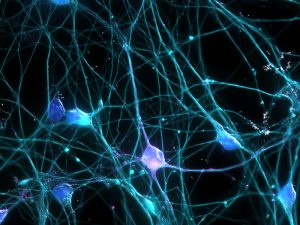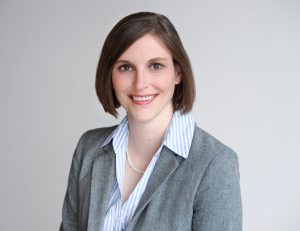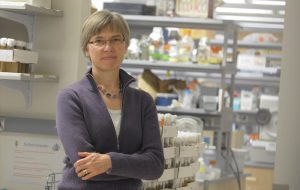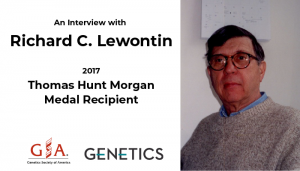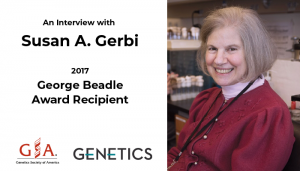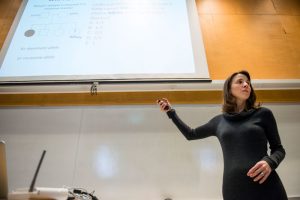Enter your address to receive notifications about new posts to your email.
Featured
-
Featured
Is a statistical test letting significance slip through the cracks?
Every scientist is familiar with the p-value: it’s one of the most commonly used metrics in statistics to evaluate the likeliness that an observed relationship is due to chance. Typically, a cutoff is set at p=0.05, such that any p-value of greater than 0.05 means the result is deemed “not statistically significant”—a heartbreaking outcome for…
-
Featured
Zebrafish offer hope for understanding severe form of epilepsy
The prolonged and severe seizures suffered by those with pyridoxine-dependent epilepsy (PDE) can lead to brain dysfunction and death if not treated. Standard antiepileptic drugs are typically ineffective for people with this rare genetic disorder—instead, they need high doses of vitamin B6 in the form of pyridoxine or pyridoxal 5′-phosphate. But even with this supplementation,…
-
Featured
Brooke LaFlamme, Chief Editor of Communications Biology, wants you to know that editors are not the enemy
Brooke LaFlamme found her career in scientific publishing through informational interviews. She recommends trainees interested in science communication fields start writing early and often. In the Decoding Life series, we talk to geneticists with diverse career paths, tracing the many directions possible after research training. This series is brought to you by the GSA Early…
-
Featured
Beyond the #GradTax: more tax proposals that threaten the scientific community
Guest post by the GSA Early Career Scientist Policy Subcommittee Scientific progress is at risk from proposed changes to the US tax code. These changes, proposed by both the House and Senate, threaten to constrict the supply of research labor and funding, the impact of which will be felt for generations. The scientific community has…
-
Featured
Circulomes vary based on cell type
In the 1980s, scientists first noticed circles of DNA interspersed among the normally linear chromosomes of eukaryotic nuclei. Little is known about these molecules, which are called extrachromosomal circular DNA (eccDNA). Variation in eccDNA appears to be biologically significant; development of an organism often comes with increased numbers of eccDNA, for example, and certain types…
-
Featured
Grad students save lives
On a spring day in 2006, I woke up from surgery to learn that I had an aggressive type of breast cancer that would require chemotherapy. I had been told I had a relatively benign diagnosis that was supposed to be cured by a mastectomy. It was devastating to realize that the surgery was not…
-
Featured
Random Factors: An Interview with 2017 Thomas Hunt Morgan Medal Recipient Richard C. Lewontin
The Thomas Hunt Morgan Medal is awarded to an individual member of the Genetics Society of America for lifetime achievement in the field of genetics. It recognizes the full body of work of an exceptional geneticist. The 2017 recipient is Richard C. Lewontin, whose contributions and influence have profoundly shaped the field of evolutionary genetics.…
-
Featured
Treasure Your Exceptions: An Interview with 2017 George Beadle Award Recipient Susan A. Gerbi
The Genetics Society of America’s George W. Beadle Award honors individuals who have made outstanding contributions to the community of genetics researchers and who exemplify the qualities of its namesake. The 2017 recipient is Susan A. Gerbi, who has been a prominent leader and advocate for the scientific community. In the course of her research…
-
Featured
Who would be hurt by higher taxes for graduate students? All of us.
What is #GradTax about? The US research enterprise is under threat by proposed tax changes that would make it difficult for all but the wealthiest students to undertake graduate training. Restricting access to advanced training would damage the nation’s ability to grow, innovate, discover new medicines, bring new technologies to market, and adapt to a…
-
Featured
Putting active learning into practice: an interview with PALM fellow Christopher Baker and PALM mentor Michelle Smith
Are you a postdoc looking for hands-on education experience and mentoring? Or a faculty member interested in bringing evidence-based, effective active learning strategies into your classroom? The PALM (Promoting Active Learning and Mentoring) network helps faculty and postdoctoral fellows gain hands-on experience and long-term mentorship in putting active learning strategies into practice. GSA is proud…
-
Featured
Stressed-out worms hit the snooze button
When you catch a nasty cold, curling up in bed to sleep may be the only activity you can manage. Sleeping in response to stress isn’t a uniquely human behavior: many other animals have the same reaction, and it’s not clear why. While the circadian sleep that follows the pattern of the clock has been…


